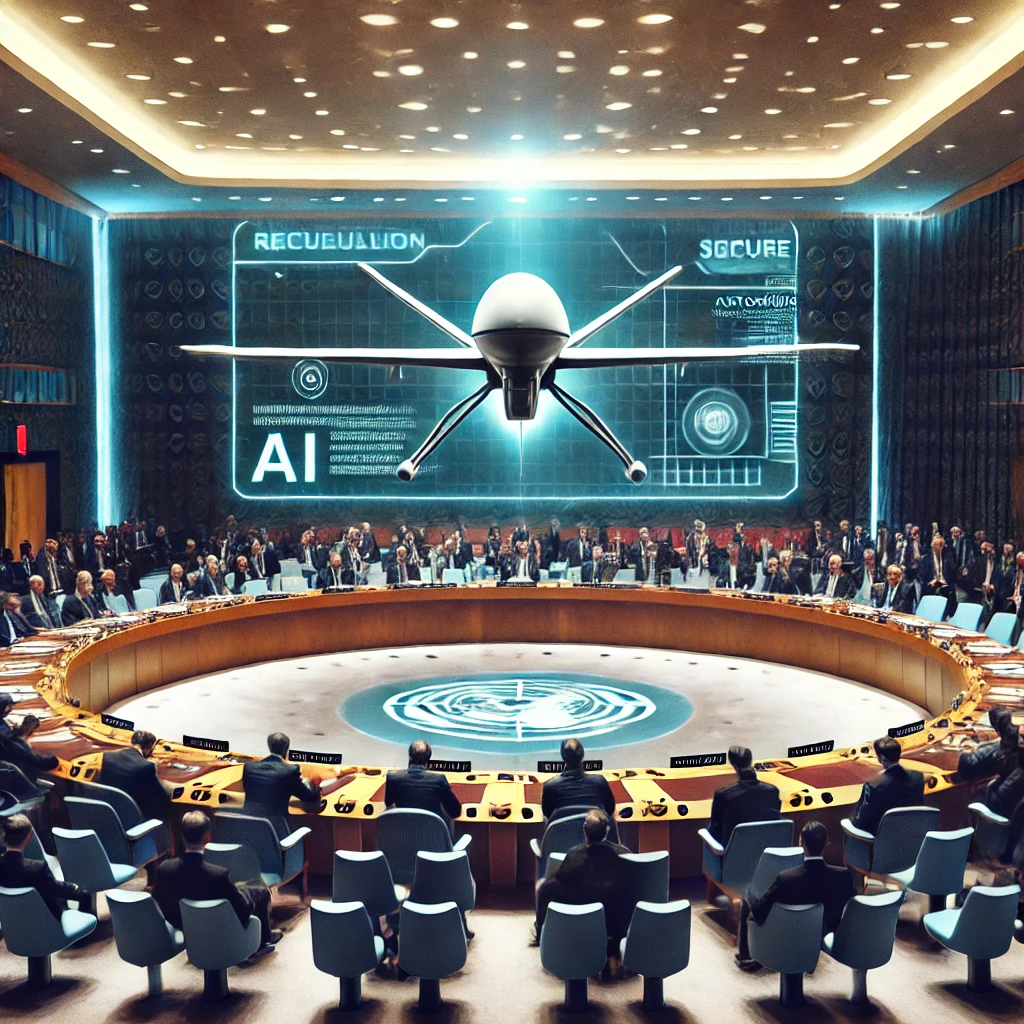
United Nations Passes Resolution on AI Regulation in Military Use
In a historic moment for global security and ethics, the United Nations Security Council has unanimously passed a resolution calling for strict international regulations on the use of Artificial Intelligence in military applications. The move is seen as a critical turning point in preventing a future where wars are fought entirely by autonomous killer robots without human intervention.
The resolution marks the first global consensus on limiting the weaponization of AI and sets the stage for long-overdue international governance in the age of intelligent warfare.
⸻
⚠️ What Prompted the Resolution?
The decision comes amid rising global concern over AI’s growing role in warfare, especially as powerful nations ramp up military investments in autonomous technologies:
• Combat-Ready AI Drones Deployed: AI-powered drones have already seen action in Ukraine and the Middle East, where reports suggest they may have operated with minimal human oversight.
• Global AI Arms Race: Major military powers including the United States, China, and Russia are investing billions of dollars into AI-driven weapon systems, pushing the world toward an era of automated conflict.
• Lack of Treaties and Legal Frameworks: Unlike nuclear weapons, which are controlled under treaties like the Non-Proliferation Treaty (NPT), there is no binding international law governing the use of AI in warfare.
⸻
🧾 Key Provisions of the UN Resolution
The new resolution outlines several critical guidelines designed to curb the unregulated spread of lethal autonomous weapons systems (LAWS):
✅ 1. Ban on Fully Autonomous Lethal Weapons
Nations are prohibited from developing or deploying fully autonomous weapons that operate without human control or accountability. All AI-based military systems must have mandatory human oversight in decision-making—especially in use-of-force scenarios.
✅ 2. Mandatory Transparency
Countries must publicly disclose their military AI development programs to the UN and submit periodic reports outlining the scope, intent, and testing protocols of these technologies.
✅ 3. Establishment of a Global Watchdog
The resolution calls for the formation of an AI Ethics Commission, a neutral international body that will monitor compliance, investigate potential violations, and advise on ethical AI deployment in conflict zones.
⸻
🌐 Global Reaction: Support with Reluctance
While the resolution passed unanimously, some major players are already signaling hesitation about full compliance:
• The United States and China offered conditional support but are expected to continue investing in military AI research and development.
• Russia has expressed concerns about the resolution’s potential impact on its defense strategies but refrained from vetoing it.
• Developing countries and civil society organizations hailed the resolution as a bold step toward ethical warfare, urging stronger enforcement mechanisms.
⸻
❗ Challenges Ahead: Enforcement & Compliance
Despite the symbolic victory, major concerns remain:
• There’s no clear enforcement mechanism—unlike the International Atomic Energy Agency (IAEA) for nuclear arms, no body currently exists with authority to penalize non-compliant nations.
• Verification difficulties mean that secret AI weapon programs could continue undetected unless stricter monitoring systems are developed.
Still, legal experts and peace advocates believe the resolution is a crucial milestone in shaping the future of military ethics.
⸻
🌍 A Turning Point in Tech Ethics and Global Security
Experts are calling this resolution the “Geneva Convention of the AI Era.” For the first time, the international community has acknowledged that Artificial Intelligence can pose existential threats—not just to individual nations but to humanity at large.
With technology evolving faster than regulation, this move by the UN signals that the time to act is now, before AI becomes the next weapon of mass destruction.












comments